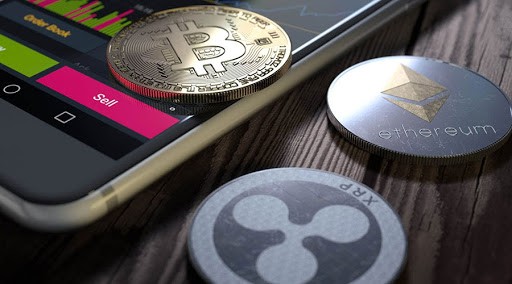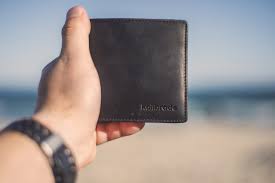In this issue
- Big waves at SEC: ‘Crypto Mom’ Hester Peirce speaks out, and more
- Elon Musk flirts with crypto Twitter
- Facebook’s WhatsApp users switch to Signal
- Bakkt looking to go public by buying shell company
- In China: DCEP e-RMB shows off new e-card features to serve its masses of rural poor
- Investment highlight: Singapore
From the Editor’s Desk
Dear Reader,
2021 kicked off with a bang. The week after reaching new highs, bitcoin prices headed north again, this time breaching the US$40,000 mark. But as we’ve seen of this market, it’s also a roller coaster as prices dipped once more on profit-taking. The question remains, just how sustainable is bitcoin’s overall trajectory upward? What we do know is that the trajectory of interest in this fairly new industry is of little doubt (we can even see it on Forkast.News and the spike we’re seeing in audience response).
What will be more impactful to the industry is what we’ll see from regulators. In my exclusive conversation with Securities and Exchange Commissioner Hester Peirce — her first media interview of the year and her first on-the-record remarks since the surprise enforcement move from the SEC against Ripple — we are seeing in real-time the disconnect sometimes across federal agencies, and within the SEC itself. What Peirce reinforced was the need for regulatory clarity, as a way to support innovation instead of stamping it out. The internal changes we’re seeing in the last days of the current administration at the SEC reflect how the regulatory mood and regard of the crypto industry might also change. The SEC’s lawsuit against Ripple as it moves forward won’t be led by the very person who helped instigate the action. This may yet leave room for a potential settlement — of which Ripple CEO Brad Garlinghouse already said the company had attempted to do and will continue to pursue with the new Biden administration.
The players are ever changing — and so, too might the rules.
Until the next time,
Angie Lau,
Founder and Editor-in-Chief
Forkast.News
1. Sunlight and changes at SEC
By the numbers: U.S. Securities and Exchange Commission — over 5,000% increase in Google search volume.
Ripple fans can finally hear directly from the SEC as Commissioner Hester Peirce — also known as “Crypto Mom” — joined Forkast.News Editor-in-Chief Angie Lau in a special episode of Word on the Block. Although Peirce declined to comment on the SEC’s litigation against Ripple and XRP, she said that the agency enforcement is “never a good way to provide clarity.”
- Meanwhile, the SEC has announced that acting enforcement director Marc P. Berger is stepping down from his position. His tenure at the SEC culminated last month in the US$1.3 billion lawsuit against Ripple Labs and CEO Brad Garlinghouse and Executive Chairman Chris Larsen.
- Commissioner Peirce told Forkast.News that the direction of the SEC in 2021 will be shaped by the person that the incoming Biden administration appoints to be agency chair. Reuters, citing two unnamed sources, reported that Gary Gensler, a former chair of the Commodity Futures Trading Commission (CFTC), will be named the next SEC chairman.
Forkast.Insights | What does it mean?
For all the many criticisms of the Trump administration, the crypto industry might find it tough to do anything but sing praises for his crypto policy legacy. The Treasury’s Office of the Comptroller of Currency is run by a former Coinbase lawyer. The Commodity Futures Trading Commission intends to provide an omnibus regulatory framework by 2024 that would set up crypto to be fully regulated just like any other commodity. “21st century commodities” is how the CFTC puts it. As reported by Forkast.News, American regulators are warming to crypto and digital assets.
But with the new administration may come a different policy direction. The much decried STABLE Act, proposed in December by three house Democrats, is an example of how this could go. While on the one hand, some regulation of the US$25 billion stablecoin sector is needed, the long reach of the bill could, under one analysis, severely restrict the ability for users to run blockchain nodes that support stablecoins and put such activity in the exclusive hands of chartered banks. So much for encouraging innovation from the ground up.
It could be tempting to regulate these industries into compliance, but then they could just vanish to a more legally permissive jurisdiction offshore. Should the Biden administration not want this to happen, they would need to work with stakeholders and not against them. There are currently two bills snaking their way through the legislative system that would strengthen regulation of crypto exchanges, but in a way that is not overly restrictive on the industry. These bills should be approached — and perfected — in a bi-partisan manner as they would let the industry thrive onshore, under the close eye of financial regulators.
2. Is Elon Musk embracing bitcoin?

By the numbers: Elon Musk — over 5,000% increase in Google search volume.
Elon Musk has dethroned Amazon’s Jeff Bezos as the newly crowned richest man alive, after Tesla’s share price increased last Thursday, pushing the firm’s market value past US$880 billion. Musk’s net worth has now surpassed US$185 billion.
- Musk also sent crypto Twitter into a frenzy over the weekend, after agreeing to never turn down bitcoin payments. Musk often tweets about bitcoin and cryptocurrencies, in what is understood to be a playful and joking manner.
Me neither
— Elon Musk (@elonmusk) January 9, 2021
- On Jan. 4, the day of ethereum’s price surge, other popular altcoins also followed suit, with dogecoin prices rising by 70%, litecoin 17%, and maker by 15%. As reported by Decrypt, even the price of Tether, the stablecoin pegged to the U.S. dollar, reached US$1.02.
Forkast.Insights | What does it mean?
Elon Musk’s playful Twitter feed aside, fund managers who service people of Musk’s wealth are certainly looking at how to integrate crypto holdings into their clients’ portfolios. Although there are challenges in getting retail investors exposed to crypto via the usual savings channels, funds from institutional investors and high-net-worth individuals are still piling into things like blockchain VC funds, or crypto trusts — funds set up to hold cryptocurrency in custody and give investors (almost always accredited or institutional) exposure to the asset. According to a report from CoinShares in early December, large-scale cryptocurrency funds were seeing capital inflows of US$429 million — US$468 million a week pushing the assets under management for crypto to US$15 billion up from US$2.57 billion at the same time last year.
As reported on Forkast.News, institutional investment in crypto is going to be a theme of 2021. The legal frameworks are now in place, both in Asia and the U.S. It might take some time for retail investors to be allowed in, but high-net-worth individuals are other capital allocators are going to lead the way pushing some resilience into this bull market.
3. WhatsApp refugees fleeing to Signal

By the numbers: Signal — over 5,000% increase in Google search volume.
A new WhatsApp privacy policy update — stating that commercial user data will be shared with parent company, Facebook — has triggered a mass exodus out of the popular messaging platform.
- In search of an alternative platform with stronger privacy features, prominent figures including Elon Musk took to Twitter to promote a WhatsApp rival as a safe haven.
Use Signal
— Elon Musk (@elonmusk) January 7, 2021
— jack (@jack) January 10, 2021
- However, IOHK CEO Charles Hoskinson told Forkast.News in a recent interview that such promises of privacy present false hope. “You’re encrypting on the wire so the transmission of the information is not problematic,” Hoskinson said. “But remember, whenever you send a message to people, it’s not just about your security standards, it’s also about the recipient’s security standards.
Forkast.Insights | What does it mean?
It’s important to remember that when a product is “free,” it will still want to find a way to pay for itself. An app that requires significant amounts of infrastructure to run — like Facebook, Dropbox or Whatsapp — pays for all of this by monetizing its users’ data. It wants to figure out who you are so that it can send highly targeted ads to you and in turn charge its advertisers a premium.
Facebook likely knows that this model is problematic, and to counter any pushback from users looking to delete their accounts, in 2012 the company purchased Instagram and in 2018, Whatsapp. Now, there are much fewer mainstream offramps. It’s hard not to interact with Facebook in some form for your online communications. But then a disgruntled co-founder of WhatsApp, Brian Acton, gave the non-profit behind Signal $50 million and then another $55 million as 0% interest loans due in 2068 to supercharge a privacy-minded competitor to the Facebook-WhatsApp goliath.
The new terms of service from Facebook for Whatsapp has only increased interest in privacy-minded alternatives to Facebook products. Although many of the most egregious claims about the lack of privacy protections in the new version of the terms of service aren’t true, Facebook’s abysmal record with privacy and monetizing user data meant that WhatsApp had to spend a significant amount of time in damage control clearing up misconceptions. Signal’s closest privacy-minded competitor, Telegram, also saw a big jump in users as the hunt for an alternative intensified.
For its part, Telegram’s CEO offered some analysis on why users were migrating by the millions away from Facebook to alternative platforms.
“I hear Facebook has an entire department devoted to figuring out why Telegram is so popular. Imagine dozens of employees working on just that full-time,” CEO Pavel Durov wrote in a recent blog post. “I am happy to save Facebook tens of millions of dollars and give away our secret for free: respect your users.”
4. Bakkt looking to go public through acquisition

By the numbers: Bakkt — over 5,000% increase in Google search volume.
Crypto exchange Bakkt, which is majority owned by Intercontinental Exchange Inc., is in talks to finalize a special purpose acquisition company (SPAC) merger with VPC Impact Acquisition Holdings.
- According to the Wall Street Journal, Bakkt’s valuation is estimated to be at US$2.1 billion after the SPAC merger.
- The potential SPAC merger of Bakkt follows a precedent set by Diginex’s backdoor listing into the Nasdaq late last year, after the Hong Kong-based company completed its business combination transaction with SPAC 8i Enterprises Acquisition Corp.
Forkast.Insights | What does it mean?
Special purpose acquisition companies (SPACs), where a shell company that is already public then hunts to acquire an already existing private company, will be a big theme of 2021. Bakkt is not the first. That title goes to Singapore-based Diginex, which became the first crypto exchange to list on Nasdaq in the so-called reverse listing in October 2020, with the ticker EQOS, after the firm’s EQUOS.io trading platform. At the time, Diginex CEO Richard Byworth told Forkast.News Editor-in-Chief Angie Lau that this was just the start of the trend in the crypto industry, revealing that he had already been approached by three of the world’s largest crypto companies asking how Diginex did it. Many in the industry remain bullish on the prospects for SPACs next year.
One method of evangelizing SPACs is positioning them as a way for private retail investors to be exposed to the gains of privately held technology companies. The market for unregistered securities — equity in a company that’s still private — is usually reserved for accredited (read: already wealthy) investors. Although this is changing, the new definition of whom is accredited still leaves many people on the sidelines. The SEC’s Regulation Crowdfunding exemptions, which allows ordinary people to invest in startups that hit certain criteria, hasn’t produced a significant amount of profitable exits for its investors despite firms raising over US$337 million in deals in 2019.
Buying stocks is just that much easier, and potentially simpler for investors to wrap their heads around. First, there’s liquidity. Secondly, it is regulated. To be a publicly-listed company provides a standard level of security for the marketplace.
Diginex’s move was the first, and is largely seen as successful as it has been on a tear — signalling that the market is hungry for more. Despite the precipitous drop in crypto prices over the last few days, Diginex stock is still up from the beginning of the month showing some separation of church-and-state between infrastructure and capital.
But investors might be more skeptical about Bakkt’s business model. It specializes in physically delivered bitcoin futures, which makes it regulatory-compliant with the U.S. Commodity Futures Trading Commission (CFTC), but with only US$200 million in volume its trading volume is a mere fraction of its rivals. A successful Coinbase IPO will likely prime the market for future moves, but Bakkt is a small player compared to others. Time will tell how successful this SPAC is.
5. In China: new DCEP digital yuan e-card for the masses

People’s Bank of China (PBOC) is testing out a DCEP digital yuan “hardware wallet” that, for the first time, does not require the internet or a smartphone.
- According to People’s Daily, a hospital in Shanghai became the first testing ground for the Digital Currency Electronic Payment (DCEP) e-RMB hardware wallet. Similar to a credit card or debit card, hospital employees can use the smart card-like device to pay for meals in the staff canteen.
- Besides DCEP’s new smart card, other kinds of e-RMB hardware wallets will be available in the future, according to People’s Daily. For example, Shen Xue, a figure skating world champion, was invited to test out a digital yuan wallet embedded in ski gloves to buy subway tickets in Beijing. More wearable DCEP hardware wallets are expected to be used in the 2022 Winter Olympics in Beijing.
Forkast.Insights | What does it mean?
Prepaid and stored-value cards are a huge part of the global payments ecosystem. Within Asia, they are mostly commonly associated with public transport. Hong Kong’s Octopus card, for instance, saw its users make approximately US$27.7 million in transactions every day in 2019.
But all of these funds that flowed from user’s Octopus cards to the 35,000 merchants in Hong Kong that accept Octopus are kept in the company’s commercial bank accounts. It’s a closed loop; the money has been digitized. It’s not digitally-issued money by Hong Kong’s central bank.
In contrast, the DCEP “hardware wallet” card being tested involves digital money via DCEP. Just like with mobile payments, it’s not going to replace the existing companies or stakeholders. Rather it will just become an alternative payment rail. Although stored-value cards are nowhere near as large as a payment method as mobile payments, this is a logical next step for the platform — especially if China wants its new digital currency to achieve widespread adoption among the 700 million Chinese — including the elderly and the rural poor — who do not own a mobile phone.
6. Funding spotlight: Singapore
Biconomy — Singapore, early stage, US$1.5 million
Singaporean blockchain application programming interface (API) developer Biconomy, which specializes in reducing transaction costs for ETH and collated mainnet reports, closed a US$1.5 million round last week. Eden Block, an Israeli venture capital fund specializing in “the environments that make up Web 3.0” led the round, with support from Binance Labs and Shanghai’s Fenbushi Capital. Biconomy was founded by Ahmed Al-Balaghi, a Dubai-based entrepreneur who currently hosts Encrypted, a monthly longform podcast dedicated to exploring the blockchain space in the Middle East.
Forkast.Insights | What does it mean?
Despite the claims of blockchain’s decentralization, Ethereum and other infrastructure providers rely on a handful of API providers to liaise between data sources and the blockchain itself. Infura’s outage in November shows why this is problematic. Everything from DApps to exchange services became unusable when Infura went down.
This outage was expensive. Coinbase’s frequent outages during bull runs shows that the system is being strained. The market has recognized there is a problem, and is allocating capital to find a solution. Look for more of this as the year goes on. Leading up to its IPO, Coinbase cannot afford any more outages. There will be plenty of capital available to fix this as the year goes on.
Correction: Jan. 14, 2021
An earlier version of this story misidentified Diginex as Hong Kong-based company. Diginex is based in Singapore, with operations in Hong Kong, Vietnam, Dubai and the U.K.




